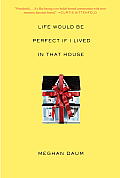
An article in today's New York Times came with the headline "At Book Expo, Anxiety Amid the Chatter." Predictably, it reported on the major presenters at the annual book industry convention, Book Expo America, and, even more predictably, conveyed various forms of bellyaching about the future of print media. As a newspaper columnist, this worry is an almost daily refrain. Nearly every time I do a public event someone in the audience asks me a question about "the death of print" -usually something like "how much longer will the L.A. Times be in business?" (as if I, a non-staff, contract writer who doesn't even have an office in the building knows the answer.) My standard answer (which I also happen to believe) is that we're in a transitional time, that the business model for print media just needs time to adjust itself so it can turn a profit in an electronic media age, that people need time to realize that news aggregating is not the same as news reporting, that eventually people will realize that reliable information is a commodity worth paying for.


The thing is, I don't know when this will happen. Moreover, I'm about as far from an "early adopter" of technology as you can get. I don't have a Kindle, a Sony Reader, or a Nook.
I have no interest in the Ipad (in fact, I only got an Ipod a few years ago.) I've had a smartphone for less than a year — and there are still many parts of it that I cannot use. In other words, I'm not the person to ask about this stuff. I still like to hold a book in my hands. I like to pick it off the bookstore shelf and feel its weight and dimensions and run my fingers along the spine.

I like to tuck in my bag when I travel and see it poking out like a piece of candy that I look forward to eating later. But apparently not everyone feels that way.
People love their e-readers (sorry, that just sounds so much like the Scientology e-meter I can't help but laugh.)
They love their Ipads and their Kindles and their Nooks. If they could get their reading material wirelessly transmitted to the surface of their contact lenses they'd apparently do so in a heartbeat.

And, you know what? That's actually good. In fact, it's more than good. It's necessary.

It's easy for Luddites like me to smirk at technology (and, for the record: I am hereby proclaiming cinema lobbies highly dangerous places because of the number of people who are checking their BlackBerries and Iphones while exiting the movie and literally walking smack into each other.) But, as an author, I'd be crazy if I pooh-poohed anything that facilitated the reading process. A staggering number of books are published each year (half a million in the U.S. along according to some counts.) Most of them are read by few people other than the author's mother or perhaps some dissertation committee (and, let's face it, these committees usually just look at the table of contents.) The way I see it, there's a tremendous about of hubris inherent in being an author. To ask someone to sit down for several hours to read what you've written is to make an enormous request. So why should we turn our noses up at anything that makes that process easier?
Why? Because writers love to complain. I'm no exception. In fact, complaining is one of my major hobbies. But if there's one thing I'm not complaining about it's anything, anything that encourages people to read my book. Sure, I don't make as much money when someone buys an electronic version of my book rather than a physical book. That takes us back to the ways in which the business model needs to catch up with the times. But just as there's a huge amount of truth to that adage "the only thing worse than a book tour is no book tour" it's also true that the only thing worse than the death of print would be the death of reading.
And it doesn't look like that's happening anytime soon. People love their gadgets too much to let that happen.